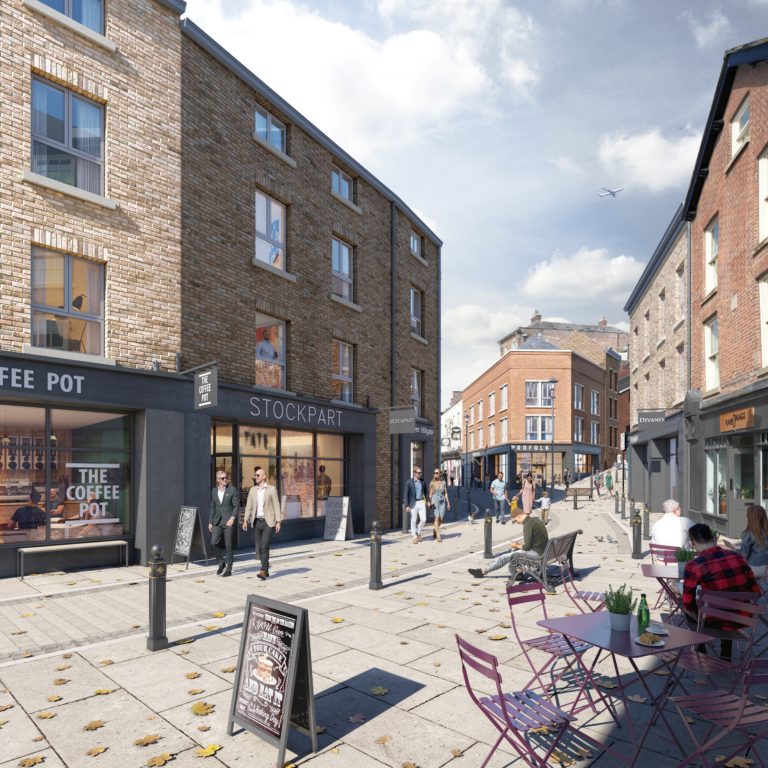There is a huge variety of descriptive nicknames for those born between 1980 and the mid-90s, but they all feature similar subject; from debt and joblessness to housing and family formation.
In a lot of those cases, the names mirror the specific problems a nation’s younger generation is facing. They range from debt and lack of housing to unemployment or more abstract concepts such as indecisiveness.
And for some, the name is meant to reflect all of the above. In Spain, young adults are called “Generación Ni-Ni” – ni trabaja, ni estudia – a generation that finds itself in a limbo of neither work nor study.
Youth unemployment in Spain hit a peak of almost 56% in 2013 and has only slightly recovered recently. The number of Spaniards between the ages of 18 and 29 experiencing serious deprivation – meaning they’re unable to heat their home or buy meat or fish at least every second day – went up by 20%, from 8% in 2007 to 28% in 2011, expressing the sharpest rise in the EU.
The group also goes by the name “Mileuristas”, due to the average monthly salary for young people fropping to €1,000. Spanish millennial David Gonzalvo states even this as an optimistic outlook: “Before the 2008 crisis, it [€1,000] was considered a low salary, but now with €600 and €700 per month salaries, it is sadly considered a blessing, as is having a full-time job in Spain.”
And yet, it could be worse. And it is. In Greece. Here it’s the Generation of 500 euros, the name comes from a scheme in which the Greek government employed young graduates for a salary of €500 per month.
The Germans are called Generation Maybe. They are well educated, highly connected, multilingual, globally minded, with myriad opportunities, but at the same time so overwhelmed by the available possibilities that they’re unable to commit to anything.
Sara Munder is 30 years old and exemplifies this paralising fear of missing out. She had a safe job in Frankfurt as a financial controller, however felt caged by everyday routine and quite to move to Latin America. After some holidaying and volunteering in Brazil and Ecuador, she felt like Germany’s stability and higher wages were missing and returned home. Immediately after returning to her old job, she yearned for the laid-back lifestyle of South America and the same things that bugged her before began irritating her again. Sara is now considering to quit again and run a hostel by the Sea.
“We are sleepwalking through a networked world of opportunity and feel insecure in the face of the plethora of options … We no longer know what to do,” wrote journalist Oliver Jeges, who coined the phrase Generation Maybe. “We want to be there and not miss anything anywhere.”
Possibly it’s these hurdles and concerns about the future that make millennials such a serious generation. They’re less prone to either wild optimism or hedonism their parents felt. Norway’s millennials were even christened “Generasjon Alvor” – Generation Serious – in 2011.
After all, this group is – to a certain extent – defined by 9/11 and the “war on terror” that followed. Terrorism is to Generation Y what nuclear war was to Generation X. Armageddon pamphlets and sirens have turned into airport security, metro lockdowns and constant warnings to report any kind of suspicious behaviour. For this generation images of mass murders in universities, nightclubs, army barracks, trains, buses, museums, cafes, beaches and city streets have been a part of growing up, and they know to fear everywhere.
In some sense, they might as well be called the Generation Terror.
“It’s like our generation’s JFK moment,” says Londoner Jac Husebo, 30, an actor and writer, of the day the twin towers fell. “I remember exactly where I was. Of course I do. I came home from school and heard my mum shout. I panicked because I thought I was in trouble. I was just in a state of shock.”
But terrorism soon became an expected part of life. On 7/7, Husebo was 21. “I was in a pizzeria in Budapest and the waiter turned around and said ‘London’s been attacked’ and we weren’t surprised. It was the next place.”
For his generation, Husebo says the fear of terrorism has led to rising levels of racism and fear – “you do catch yourself on the tube, wondering about people” – but he acknowledges such fear is not unique to his generation. “Now it’s the Islamists, before that it was the Soviets. I don’t think any generation hasn’t lived under a state of threat or fear.”
There are very few positive nicknames for Gen Y.
In Sweden they’re titled Generation Curling. They’re named after the sport in which teammates fanatically sweep the ice in front of their stone to make sure its journey is smooth and unhindered. Millennial parents have done everything they can to clear their children’s paths from any obstacles, they’ve alleged their critics, refused to set boundaries and defended them to teachers.
Swedish psychiatrist Dr David Eberhard argues that this parental pampering has led to a generation of subadults who struggle to emotionally deal with minor setbacks such as the death of a dog or a boss telling them off.
Yosuke Nishimura is a 27-year-old university graduate and quite exemplary of Japan’s “yutori sedai”, the relaxed generation. Since leaving university he has spent his time working for a couple of different companies, however he says he is hesitant to spend his foreseeable future job-hopping and living with his parents.
Nishimura does not have a girlfriend and the thought of settling down has never crossed his mind. Whilst the postwar generation were big savers, Nishimura explains his bank balance come close to zero every month after giving a modest rental contribution to his parents and spending the remainders on evenings out and surfing or fishing trips.
“It’s not about being selfish – I just belong to a generation that does things differently,” he says. “The baby boomer generation had everything mapped out for them, but, for good or bad, we are more interested in enjoying our moment of freedom.” Freedom only goes so far, however. Nishimura is a pseudonym. He does not want to be identified.
In China, the millennials are strongly shaped by their country’s politics. The one-child-policy was introduced in 1979 and makes China’s millennial generation an unbalanced one, with approximately 33 million more males than females, and a lonely one.
The Chinese millennials are not only disproportionately male, but they are also the “little emperors” or “ken lao zu” – the generation that eats the old. The name stems from the fact that a lot of them are happy to live parasitically off their doting parents, according to a survey 70% of young Chinese people thought it reasonable to ask their parents to give them money to buy a house.
When it comes to the English-speaking world, the names for young adults become less creative. They are called millennials because they came of age as one millennium enden and the next began, or Generation Y, following Generation X. Although they might as well be called Generation Rent in Australia and the UK or Generation Debt in the US.
Young adults in Britain have basically been hit twice. Once by insanely high house prices and then again by employment difficulties. In 1991, 61% of those aged between 25 and 34 owned the home they lived in, by 2012 this number has dropped to 43%. Those who are unable to afford end up renting, and renters are facing grim prospects with spending an average of 47% of their net income on rent.
To top this off, young Britons are almost three times more likely to end up unemployed than those in other age brackets. This inequality is mirrored in most other countries. In total, 14.4% of those aged 16-24 aren’t in full-time education or employment, for the total working population the percentage lies at only 5.7%, the biggest gap in more than 20 years.
In Australia, the biggest trouble Generation Y is experiencing is being locked out of the housing market. Whilst in 1975 it took four times the median household income to buy a property in Sydney, it now takes 12 times.
In the US the millennial generation is defined by debt. In total over 40 million people have student loan debt, owing an average of $29,000 each, adding up to a combined sum of more than $1tn. And whilst costs for college education in the US have skyrocketed over the last years (increasing 1,120% from 1978 to 2010) the job market has become tougher, making it hard to pay off the debts.
“[Millennials are] not only taking on debt at a higher rate, they’re paying it off at a slower rate. These poor kids come out of college with the equivalent of a mortgage already,” says Lucia Dunn, an economics professor at Ohio State University.
Possibly one of the most accurate names for this struggling generation is “Echo Boomers”. For once, because the increased birth rate in the 80s and 90s makes Generation Y about the same size as the baby boomer generation (born between 1946-64), but also because they share a lot of the values.
Whilst millennials don’t want to make the same mistakes the baby boomers made and are citicising them for hoarding their wealth and putting the environment at serious risk, at the same time, they want a lot of the same things. it’s homeownership in Britain and Australia, escaping debt in the US, a job and any sense of future in Spain and Greece.
It appears what Generation Y really wants, as well as flexibility, fairness and tolerance – all things this generation is praised for – is for capitalism, which seemingly worked well for their parents, to fulfil its promise to them.
“The difficulty the Spanish (and many European) youth face to mobilise is that they want to live like their parents, in a world of consumer capitalism,” writes Spanish academic Antonio Alaminos. “They do not want to end it; it is capitalism that has broken up with them.”
Source: The Guardian










